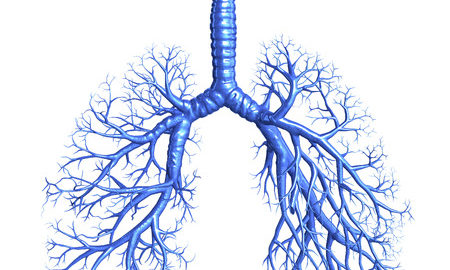Mini Lungs Developed to Help Scientists Study Respiratory Diseases

Researchers at the Columbia University Medical Center have developed mini lungs or organoids in the laboratory to help study respiratory diseases. The 3-D structures closely mimic adult-sized lungs and have been created from pluripotent stem cells to serve as models of lung diseases in the laboratory. The findings were reported in Nature Cell Biology.
Mini Lungs Developed to Help Scientists Study Respiratory Diseases
The 3-D organoids contain the various types of cells found in human lungs and they resemble the full-sized organs in both look and function. These mini lungs, therefore, can be used to study human respiratory diseases, test new drugs, and discover novel ways to regenerate diseased and damaged lung tissue.
Professor of Medicine and lead investigator of the study, Hans-Willem Snoeck, Ph.D., explains that the organoids replicate key features of diseased lungs. They contain branching airways and alveoli that are very similar to actual lungs.
Experiments with Stem Cell Generated Mini Organs
The team tested the functionality of the organoids by introducing RSV (respiratory syncytial virus) to the laboratory dishes. The mini organs behaved in much the same way as real lungs. Further experiments revealed that the mini organs also mimicked human lungs in carrying the gene mutation for pulmonary fibrosis.
There is no vaccine or effective therapy for RSV, a virus that infects the lower respiratory tract in infants and claims 30,000 to 40,000 lives in America each year. The mini organs are a novel method to study the pathogenesis of the disease and gain insight into developing new treatments for it.
References:
https://www.medicalnewstoday.com/releases/317480.php


